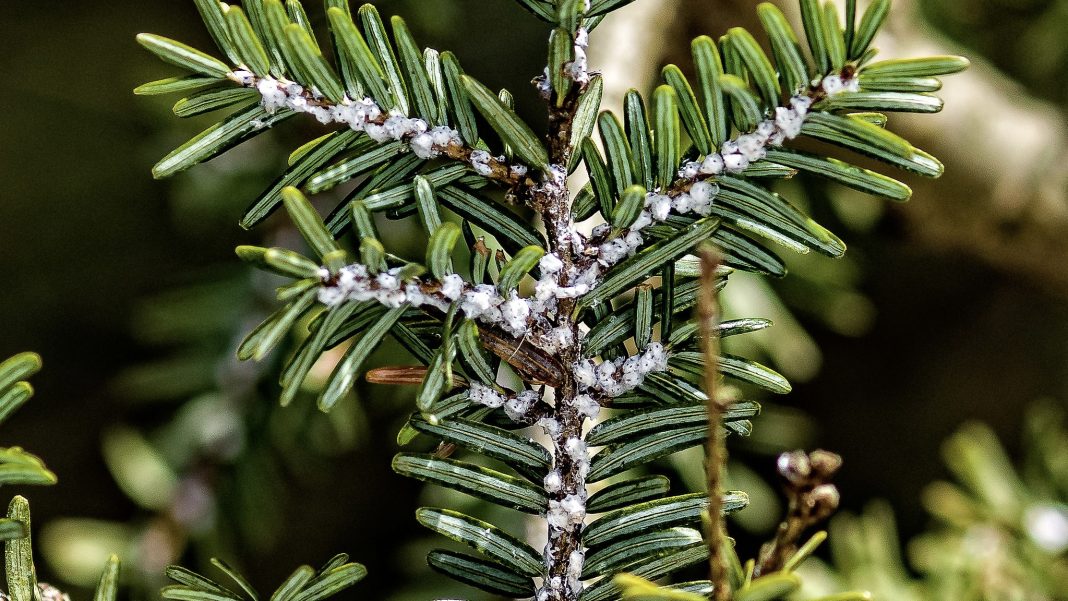As climate change has caused warmer winters, an invasive insect called the hemlock woolly adelgid has spread across forests in the Eastern U.S., killing hemlock trees from Maine to Alabama.
And scientists are worried that this insect’s spread could also accelerate climate change.
Hemlocks, like other trees, absorb planet-warming carbon from the atmosphere as they grow.
Danielle Ignace of the University of British Columbia explains that when hemlock needles fall, the carbon they contain is stored in the soil for a long time.
Ignace: “These needles, they’re hard to decompose. … They don’t break down very easily, but they really build this strong, deep, and really full soil organic layer. So that has great potential to store carbon.”
But when the woolly adelgid kills a hemlock, that evergreen tree is often replaced by a deciduous tree like black birch. And black birch leaves decompose much faster than hemlock needles.
Ignace: “Those leaves are much easier to break down.”
… which releases carbon back to the atmosphere more quickly.
So as the woolly adelgid spreads, Eastern forests may store less carbon underground – which could make global warming worse.
Reporting credit: Ethan Freedman / ChavoBart Digital Media
We help millions of people understand climate change and what to do about it. Help us reach even more people like you.


